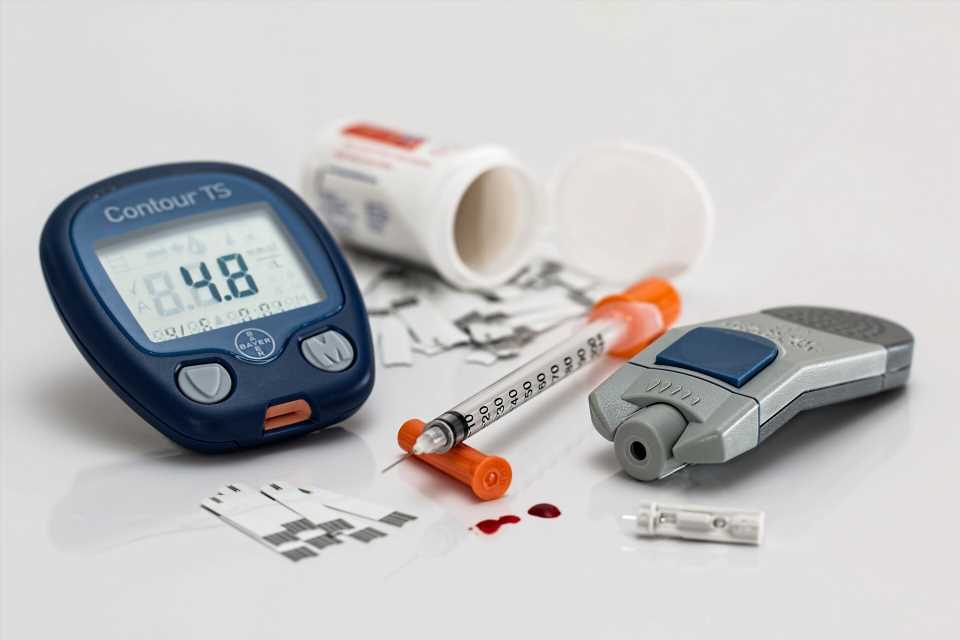
Researchers at St Vincent’s Institute of Medical Research (SVI) in Melbourne have shown that a commonly prescribed rheumatoid arthritis drug can suppress the progression of type 1 diabetes.
The world-first human trial, published in the New England Journal of Medicine and led by SVI’s Professor Thomas Kay, showed that a drug called baricitinib can safely and effectively preserve the body’s own insulin production and suppress the progression of type 1 diabetes in people who initiated treatment within 100 days of diagnosis.
“When type 1 diabetes is first diagnosed there is a substantial number of insulin-producing cells still present. We wanted to see whether we could protect further destruction of these cells by the immune system. We showed that baricitinib is safe and effective at slowing the progression of type 1 diabetes in people who have been recently diagnosed,” said Professor Kay.
This ground-breaking research shows promise as the first disease-modifying treatment of its kind for type 1 diabetes that can be delivered as a tablet.
“It is tremendously exciting for us to be the first group anywhere in the world to test the efficacy of baricitinib as a potential type 1 diabetes treatment,” said Professor Kay.
“Up until now, people with type 1 diabetes have been reliant on insulin delivered via injection or infusion pump. Our trial showed that, if started early enough after diagnosis, and while the participants remained on the medication, their production of insulin was maintained. People with type 1 diabetes in the trial who were given the drug required significantly less insulin for treatment.”
Management of the lifelong autoimmune disease is incredibly burdensome on those diagnosed and their families, requiring meticulous glucose monitoring and insulin administration day and night to stay alive.
Up until insulin’s discovery more than 100 years ago, type 1 diabetes was a fatal condition. Despite insulin’s life-saving role, the therapy itself is potentially dangerous if too much or too little is administered, and the condition still comes with long-term complications, including heart attack and stroke, vision impairment, kidney disease and nerve damage.
“We are very optimistic that this treatment will become clinically available. This would be a huge step-change in how type 1 diabetes is managed and we believe it shows promise as a fundamental improvement in the ability to control type 1 diabetes,” said Professor Helen Thomas, preclinical lead on the trial.
The randomized, double-blind, placebo-controlled human trial of the drug baricitinib monitored the blood glucose and insulin production of 91 participants over the course of one year. Of these, 60 were given baricitinib and 31 were given a placebo. All trial participants were aged between 10 years old and 30 years old and started on the trial within 100 days of having been diagnosed with type 1 diabetes.
Participants continued with their prescribed insulin therapy throughout the duration of the study. Researchers monitored participants’ total daily dose of insulin, the amount of insulin produced endogenously (by their own pancreas), their blood glucose levels, and their HbA1C levels. HbA1c, or glycated hemoglobin, is a measure of average blood glucose (sugar) levels for the last two to three months.
Baricitinib blocks an enzyme that normally helps to transmit signals that regulate the immune system and inflammation. The drug is currently prescribed for the treatment of rheumatoid arthritis, which is another autoimmune disease. It is thought that the drug similarly dampens down the immune response that is mounted against insulin-producing cells in people with newly diagnosed type 1 diabetes, thus delaying the onset of full-blown symptoms of the disease, improving glucose control and reducing potential for detrimental longer term health effects.
More information:
Baricitinib and β-Cell Function in Patients with New-Onset Type 1 Diabetes, New England Journal of Medicine (2023). DOI: 10.1056/NEJMoa2306691
Journal information:
New England Journal of Medicine
Source: Read Full Article
